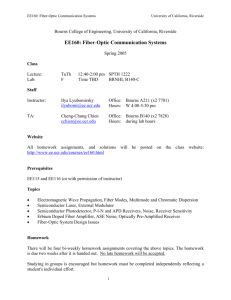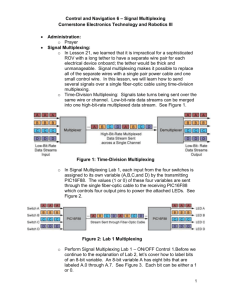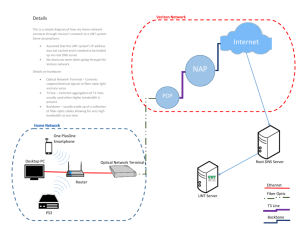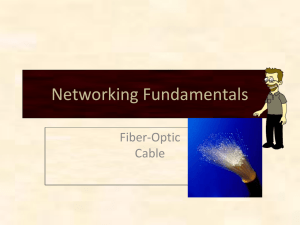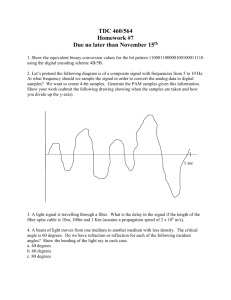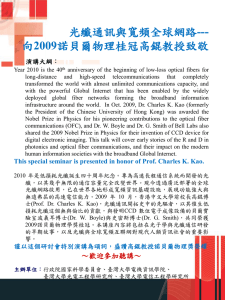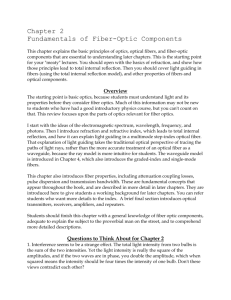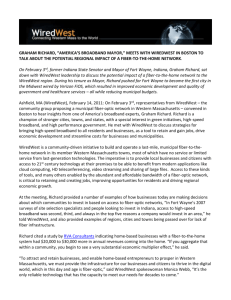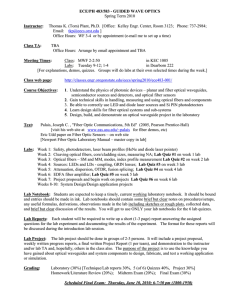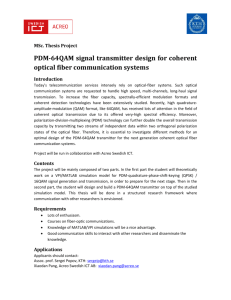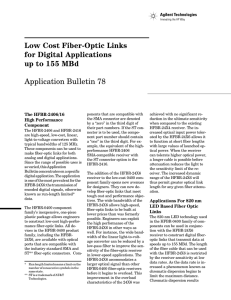eriii22_control_navigation5
advertisement
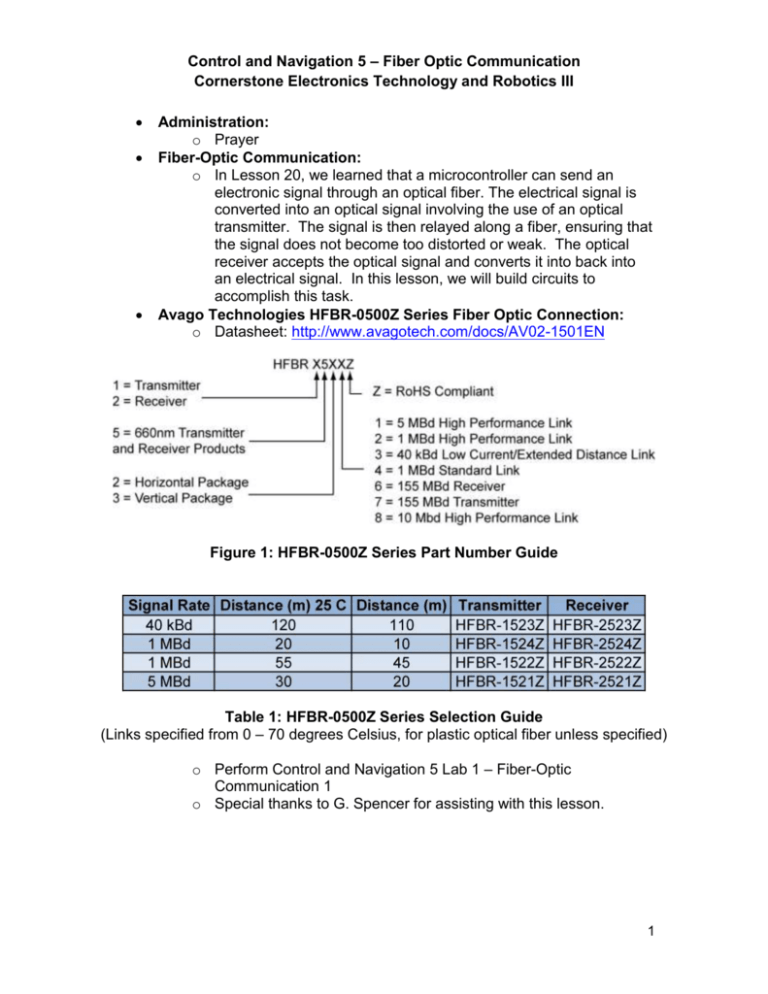
Control and Navigation 5 – Fiber Optic Communication Cornerstone Electronics Technology and Robotics III Administration: o Prayer Fiber-Optic Communication: o In Lesson 20, we learned that a microcontroller can send an electronic signal through an optical fiber. The electrical signal is converted into an optical signal involving the use of an optical transmitter. The signal is then relayed along a fiber, ensuring that the signal does not become too distorted or weak. The optical receiver accepts the optical signal and converts it into back into an electrical signal. In this lesson, we will build circuits to accomplish this task. Avago Technologies HFBR-0500Z Series Fiber Optic Connection: o Datasheet: http://www.avagotech.com/docs/AV02-1501EN Figure 1: HFBR-0500Z Series Part Number Guide Table 1: HFBR-0500Z Series Selection Guide (Links specified from 0 – 70 degrees Celsius, for plastic optical fiber unless specified) o Perform Control and Navigation 5 Lab 1 – Fiber-Optic Communication 1 o Special thanks to G. Spencer for assisting with this lesson. 1 Cornerstone Electronics Technology and Robotics III Control and Navigation 5 LAB 1 – Fiber-Optic Communication 1 Purpose: The student assembles the hardware needed for fiber-optic communication. Apparatus and Materials: o 1 – Breadboard with +5V supply or an Analog/Digital Trainer o 1 – HFBR-1522Z Fiber-Optic Transmitter Source: http://www.digikey.com/product-detail/en/HFBR1522Z/516-2044-ND/1990442 Datasheet: http://www.avagotech.com/docs/AV02-1501EN o 1 – HFBR-2522Z Fiber-Optic Receiver Source:http://www.digikey.com/scripts/DkSearch/dksus.dll?l ang=en&keywords=516-2063-nd&WT.srch=1&cur=USD Same datasheet as above o 1 – HFBR-4501Z Grey Fiber-Optic Connector Source: http://www.digikey.com/productsearch/en?x=0&y=0&lang=en&site=us&KeyWords=5162071-ND Datasheet: http://www.avagotech.com/docs/AV02-1508EN o 1 – HFBR-4501Z Blue Fiber-Optic Connector Source: http://www.digikey.com/scripts/DkSearch/dksus.dll?WT.z_he ader=search_go&lang=en&keywords=hfbr4511z&x=0&y=0&cur=USD o 1 – Fiber-Optic Cable, 1 mm Fiber Diameter, 2.2 mm Jacket (Insulation) Diameter Source: http://www.digikey.com/scripts/DkSearch/dksus.dll?WT.z_he ader=search_go&lang=en&keywords=FB140-1ND&x=0&y=0&cur=USD o 1 – 75451 Dual Peripheral Driver Source: http://www.jameco.com/webapp/wcs/stores/servlet/ProductD isplay?freeText=75451+&langId=1&storeId=10001&productId=51027&search_type=jamecoall &catalogId=10001&ddkey=http:StoreCatalogDrillDownView Datasheet: http://www.jameco.com/Jameco/Products/ProdDS/51027.pdf Substitution: 1 – 74LS00 Quad Input NAND Gate 1 – 2N2222A NPN Transistor o 1 – PIC16F88 Microcontroller o 1 – NO Momentary Switch o 1 – 51 Ohm Resistor o 2 – 150 Ohm Resistors o 1 – 4.7 K Resistor o 1 – 1K Resistor o Apparatus and Materials continued on the next page 2 o o o o o Apparatus and Materials continued: 1 – 4.7 uF Capacitor 1 – 1500 pF (0.0015 uF) Capacitor 1 – 0.1 uF Capacitor 2 – LEDs Procedure: o Wire the circuit below. o Disconnect the cable from the receiver and press the momentary switch. Observe the 660 nm light pulsating at the open end of the cable. o Reconnect the cable to the receiver and observe the LED’s response to the switch. o Using a logic probe, check the data input into the 75451 when you press the switch. o Now check the data output from the receiver when you press the switch. o Now, rewire the circuit to match the circuit below. Note that only the data input into the fiber-optic transmitter has been changed. o Program the PIC16F88 with fiber_optic1.pbp and observe the data input and output LEDs. 3
